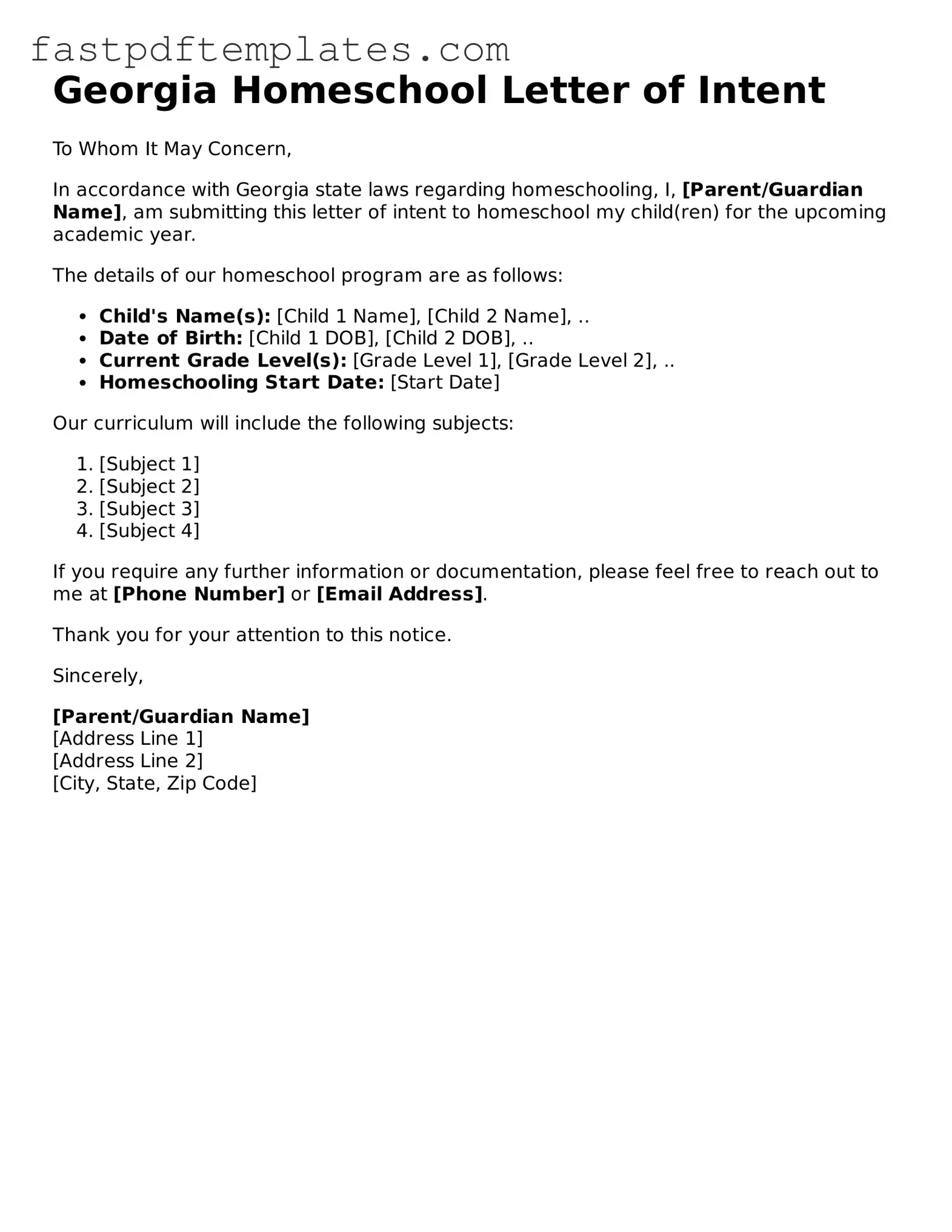Attorney-Approved Georgia Homeschool Letter of Intent Document
The Georgia Homeschool Letter of Intent is a formal document that parents must submit to the state to declare their intent to homeschool their children. This letter serves as an official notification, allowing families to take charge of their children's education outside the traditional school system. Understanding the requirements and process for this form is essential for any parent considering homeschooling in Georgia.
Access Document

Attorney-Approved Georgia Homeschool Letter of Intent Document
Access Document
Your form still needs completion
Complete your Homeschool Letter of Intent online and download the final PDF.
Access Document
or
Click for PDF Form
